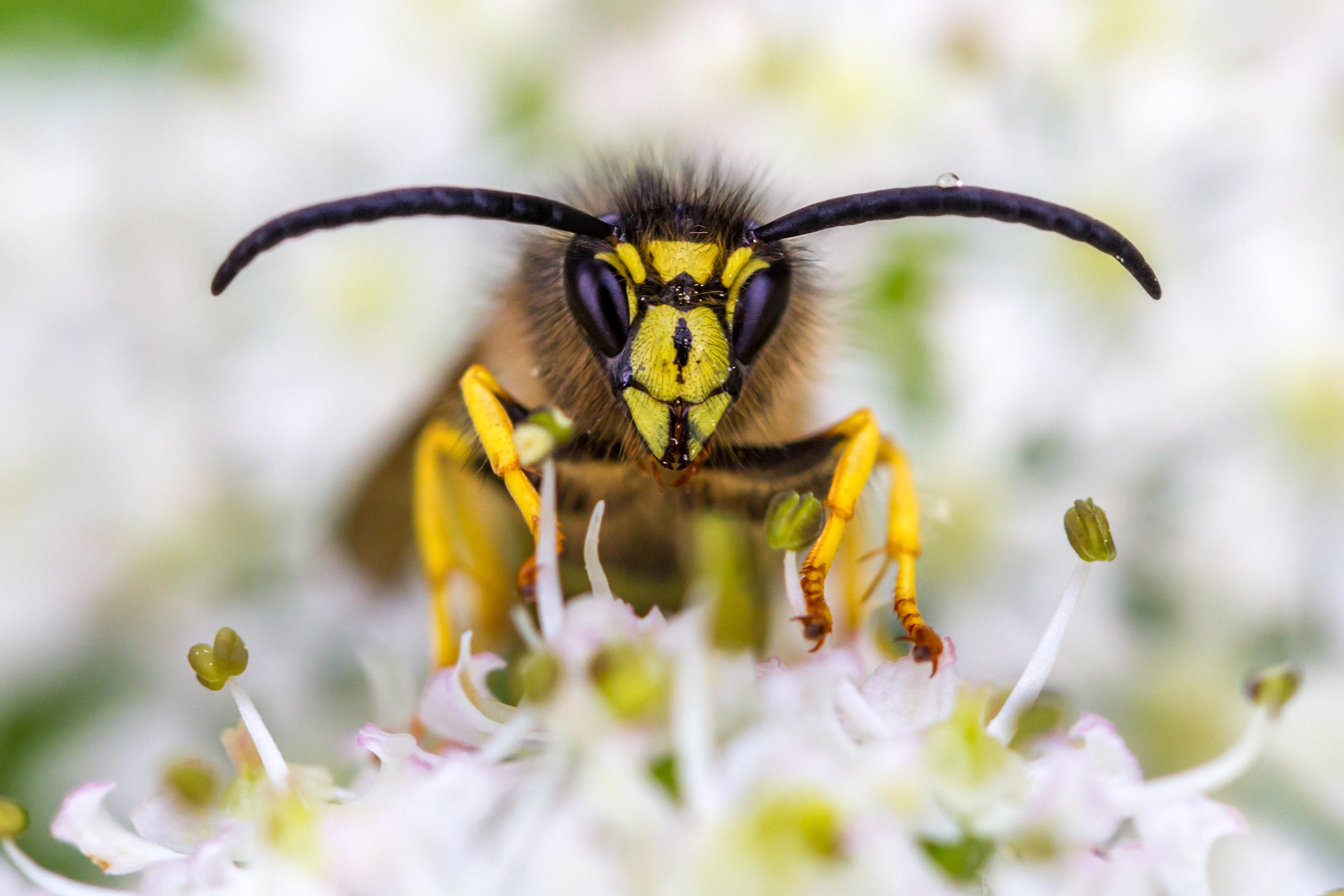'It’s not ironic that I really like wasps and that they nearly killed me. It’s simply a coincidence': What to do if you're stung by a wasp
After a close encounter with some wasps put him in hospital, William Kendall sought an unlikely remedy...


I am a big fan of wasps and what my hero, the insect biologist and conservationist Prof Dave Goulson, calls their weird and wonderful world. There are more than one million species of these enigmatic creatures, yet humans spend most of their time fussing about only one. It turns out that if I had done a bit more fussing about that one, I might have avoided a night lying in a corridor on a trolley in Ipswich Hospital.
It was a late-summer evening full of promise. Some charming French students had organised a party to celebrate their time as guests on our organic farm and I had been welcomed with a drink of industrial strength that echoed the best of student cocktails. It soon seemed right to investigate the whiff emanating from our newly installed waste system. As I energetically swiped at the weeds lining the nearby ditch, I failed to notice that the clouds of thistledown were now shrouding some well-drilled wasp squadrons. A later investigation revealed that I had knocked the top off not one, but two, wasp nests. In formation, the wasps attacked intelligently by concentrating their fire only on my more vulnerable body parts. I tried to count the dozens of stings in tender places as I lay on my trolley during the night.
The next 20 minutes were a case study in what not to do when stung. First, it’s best not to have consumed a punchy cocktail. It’s a good idea to lie down, with your feet raised. Then take a full dose of antihistamine and wait, calmly, for the period of maximum risk — up to an hour — to pass. Whereas I pretended that nothing had happened so as not to spoil the party, before deciding to run at full tilt back to the house for something to soothe the stings.
A few minutes later, it felt as if an elephant was sitting on my chest and the world went dark
Fortunately, my wise wife insisted on coming with me. As I raced up a final flight of stairs to the medicine cabinet, I felt my blood pressure plummet. A few minutes later, it felt as if an elephant was sitting on my chest and the world went dark. Luckily, years of watching medical dramas meant Mrs Kendall was able to offer mouth-to-mouth breathing assistance as the emergency services offered detailed advice down the phone. Rural Suffolk isn’t awash with ambulances on a Friday evening, but a crew had just come off duty and were enjoying a well-deserved takeaway in our market town. A few minutes later, they were at my side with breathing equipment. A shot of adrenaline works wonders and not only brought me back to consciousness, but enabled me to remonstrate with the paramedics who were trying to remove my brand new Paul Smith jeans with a pair of scissors.
Several hours and a few more adrenaline shots later, I was on my trolley watching Ipswich medics dealing with other careless locals on a Friday night, as well as some rather more deserving patients. Apparently, systemic shocks and life-threatening anaphylaxis (which is what I had experienced) require overnight observation in case they return. That ought to have been the end of the story, except that I was told that I was now much more likely to react similarly to any future wasp sting. Lots of people carry adrenaline in case of allergic reactions, but for someone who enjoys the company of wasps and who struggles even to remember their phone and wallet, the idea filled me with dread. My GP told me there was nothing I could do, but a bit of internet research showed that certain hospitals offer desensitisation therapy for various reactions. It’s particularly effective for wasp and bee stings and farmers, beekeepers and bin men are seen as priority candidates for what is a major investment for both the NHS and the patient.
I am now three months into a three- to five-year-long programme. The first phase involves weekly injections of venom, which build up to the ultimate dose of two whole wasp stings. You then need an injection every couple of months for several years to ensure some sort of lifetime protection. It’s quite a commitment, but the specialists are charming and interesting and it means that well-meaning friends and family will stop panicking every time a wasp comes near me. The injections can make you weary, although not as much as people asking if I am still a wasp fan, before then pointing out the apparent irony of my position. It’s not ironic that I really like wasps and that they nearly killed me. It’s simply a coincidence.
Exquisite houses, the beauty of Nature, and how to get the most from your life, straight to your inbox.
William Kendall is an entrepreneur behind the success of brands like New Covent Garden Soup Company, Green & Black’s and, more recently, Cawston Press. He advises a number of private businesses and is a Trustee of The Grosvenor Estate. He farms in Suffolk and Bedfordshire and is President of The Suffolk Wildlife Trust.
